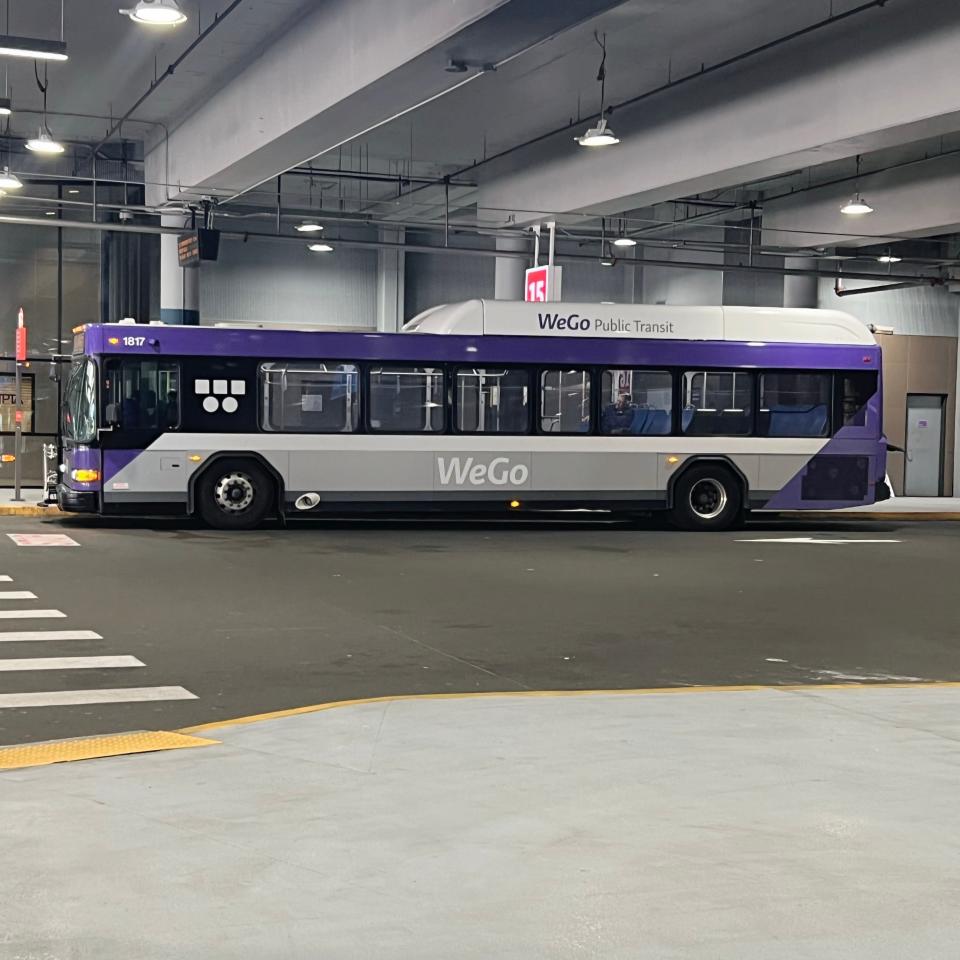Buses are the way forward for Nashville, but more investment is essential | Opinion
Too often, ambition gets in the way of accomplishment. Everyone in Nashville complains about the traffic. Discussion of solutions has centered on building subways, trams and light rail.
Several years ago, these ideas coalesced into a $9 billion proposal, but the voters rejected it as too expensive, risky and disruptive
A recent trip to London, England, opened my eyes to another possibility. London, which has a population 9.5 million, has a good rail and subway system, but it also has outstanding bus service, symbolized by its famous double-decker buses.
Its buses carry 6.5 million people every day — totaling 68% of its population. Almost every bus stop has a shelter to protect those waiting from the rain and detailed maps and schedules of the routes of passing buses.
Many have electronic displays showing when the next buses will arrive. The system is as convenient as the subway and even more extensive.
Hear more Tennessee Voices: Get the weekly opinion newsletter for insightful and thought provoking columns.
Improvements are need; here are some ideas
Nashville, in comparison, with 704,000 people, had an average monthly ridership of 532,967 per month in 2022, which is about 17,765 per day — or the equivalent of 2.5% of the population.

Stops often consist of no more than a sign saying that a bus will stop here at some point.
There are not enough shelters from the rain and sun. Service is not always consistent. Under these circumstances, it is no wonder that so few use the system.
The good news is that improvements could yield substantial benefits. Considering the price of gasoline, the trouble and expense of parking, and the frustrations of traffic, it is safe to say that many Nashvillians would take a bus if it was convenient and reliable — particularly if it offered free Wi-Fi.
Assuming that bus riders take two trips per day, out and back, simply doubling Nashville’s ridership to 40,000 a day could take 10,000 cars off the roads. A really large increase in the number of riders to, say, 100,000 a day could eliminate the worst of the traffic problem.
Progress would be neither easy nor free. The city would have to greatly increase the frequency of buses and establish many more routes. It would have to upgrade almost every stop with shelters and maps as well as repair vandalism and erase graffiti promptly.
Not the least, the city would have to advertise service heavily, not simply for a few months but constantly. All of this would cost money.
State of the art buses cost over $500,000 each. Upgrading bus stops will cost more, as will new drivers. Income from fares will cover only part of the expense. Even with large improvements in service, ridership will increase only gradually.
People will not abandon their cars unless they have confidence in the bus system and building that confidence will take time. An ambitious, well-executed expansion of bus service would probably require about two years before showing results.
Sign up for Latino Tennessee Voices newsletter: Read compelling stories for and with the Latino community in Tennessee.
Sign up for Black Tennessee Voices newsletter: Read compelling columns by Black writers from across Tennessee.
Cost is why investing in buses is the best solution
Buses are far less expensive and disruptive than the alternatives, however. Subway train cars can cost as much as $2 million each and digging a subway tunnel can cost as much as $1 billion a mile.

Construction would take years. Of course, Nashville could simply build new roads and widening existing ones, but that would cost every bit as much as a subway and take just as long to complete.
Politicians like dramatic gestures that create headlines and allow them to hand out large sums of money.

Nashvillians are right to be skeptical of such initiatives.
Buses offer a way forward if only the people of Nashville and their leaders will recognize it.
Wyatt Wells is a professor of history at Auburn University at Montgomery, but he grew up and received much of his education in Nashville.
This article originally appeared on Nashville Tennessean: Buses are the way forward for Nashville, but more investment is key

